Proper room service is dying and that’s horrible. Many hotels dropped it entirely. Twelve years ago the Hilton New York eliminated it, the largest hotel at the time to do so. That saved them 55 positions (!) and they argued they had a grab and go market so you could still easily get food on property. Transferring the burden to the guest to go for the food, wait for it, and return to their room is not the same thing.
Where room service still exists it may be limited hours (I stayed at a Park Hyatt last week where room service wasn’t 24 hours) or delivery may be in paper. J.W. Marriott used to position itself as a premium brand but presents this:
This is what $110 in “room service” at the Indianapolis JW looks like. Cocktail napkins! You can’t even give me real napkins? They add a 22% tip and $5 delivery charge.
Room service cab be expensive, yet is often a loss leader because it’s expensive to provide – staff costs for kitchen and running to rooms; trays and plates and cutlery that doesn’t always return – this is doubly so in heavily unionized big cities.
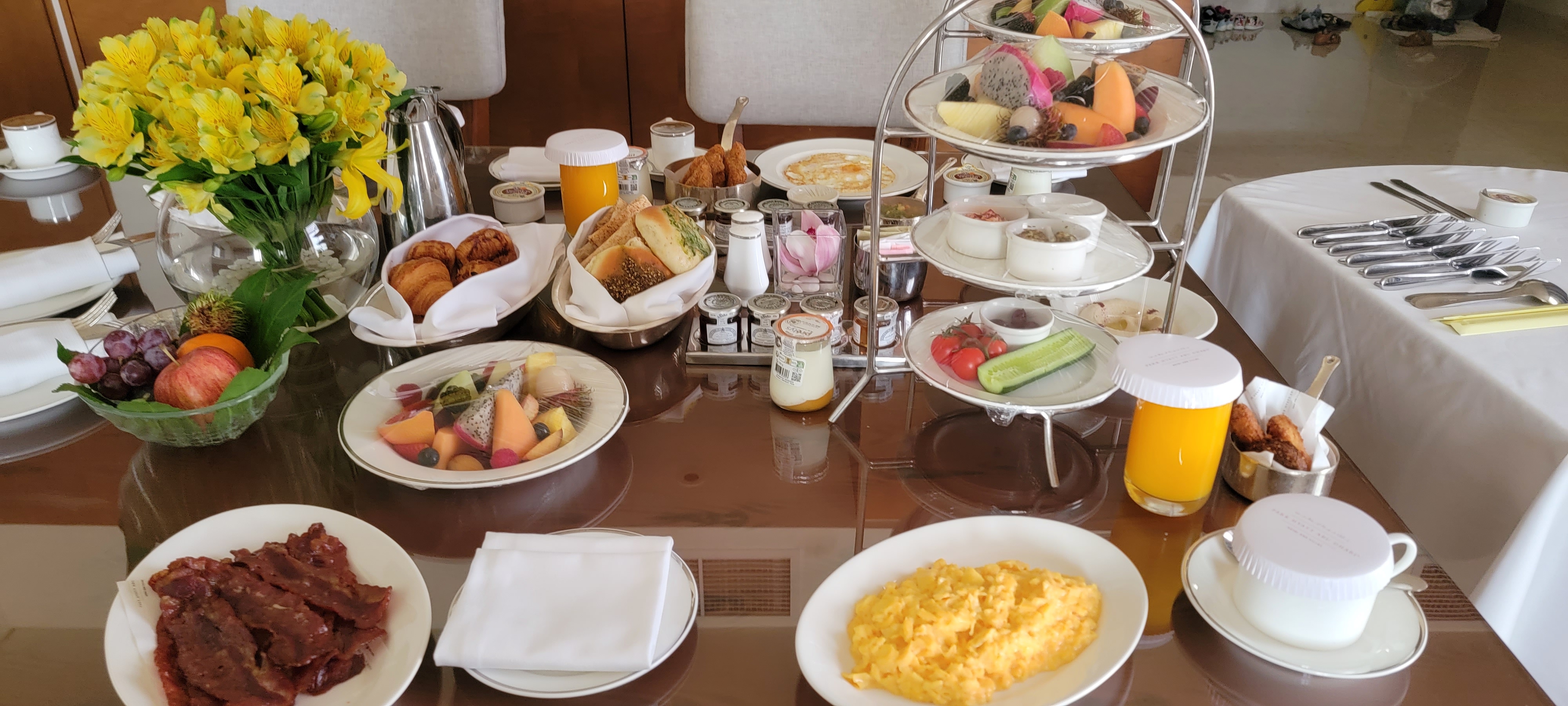
When hotels try to save on labor, guests complain that delivery take too long. The food may not be good, and ordering off an app might be better.
- But ordering off an app can also be less reliable, given the need for a driver to go to the restaurant and challenges with traffic in getting the food.
- And Uber Eats may only offer better food in the best food cities, and when you’re staying in the areas with best food. (Many dishes also do not travel well in any case.)
- And that’s just a reason to present in an elevated fashion, to distinguish itself from Uber Eats. Too often they fail to even deliver plastic forks which is why I have to carry them in my laptop bag.
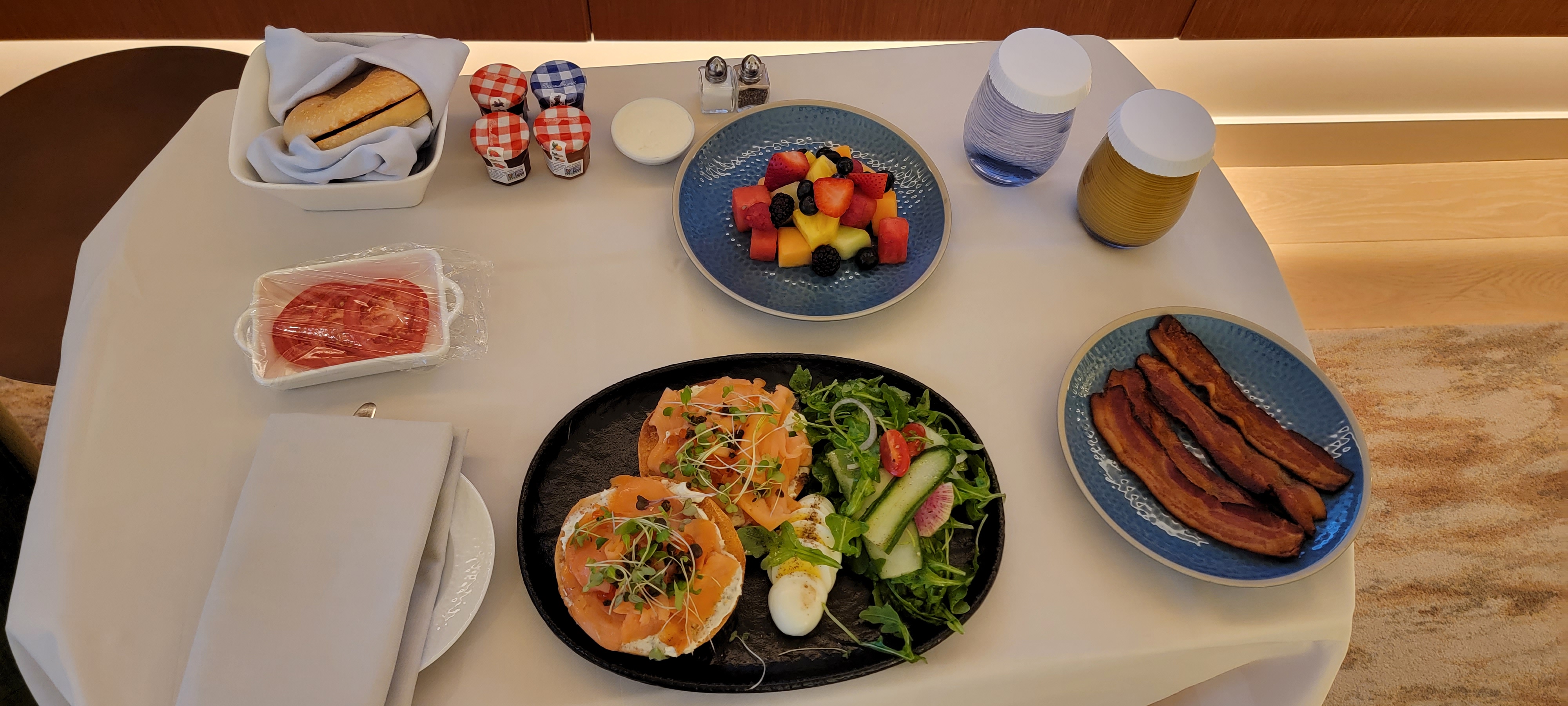
Offering convenience and comfort is a service that makes life better for guests who choose to order it. Limited-service properties don’t need to offer it, and hotels that can ‘get away with’ less service because of their location or other features that cause them to fill up make it possible to drop the feature.
For really premium hotels, room service is an Those that do it well can really earn outsized guest loyalty by creating an emotional connection. What more powerful way is there to do that than food?
Yet this completely takes away from that experience:
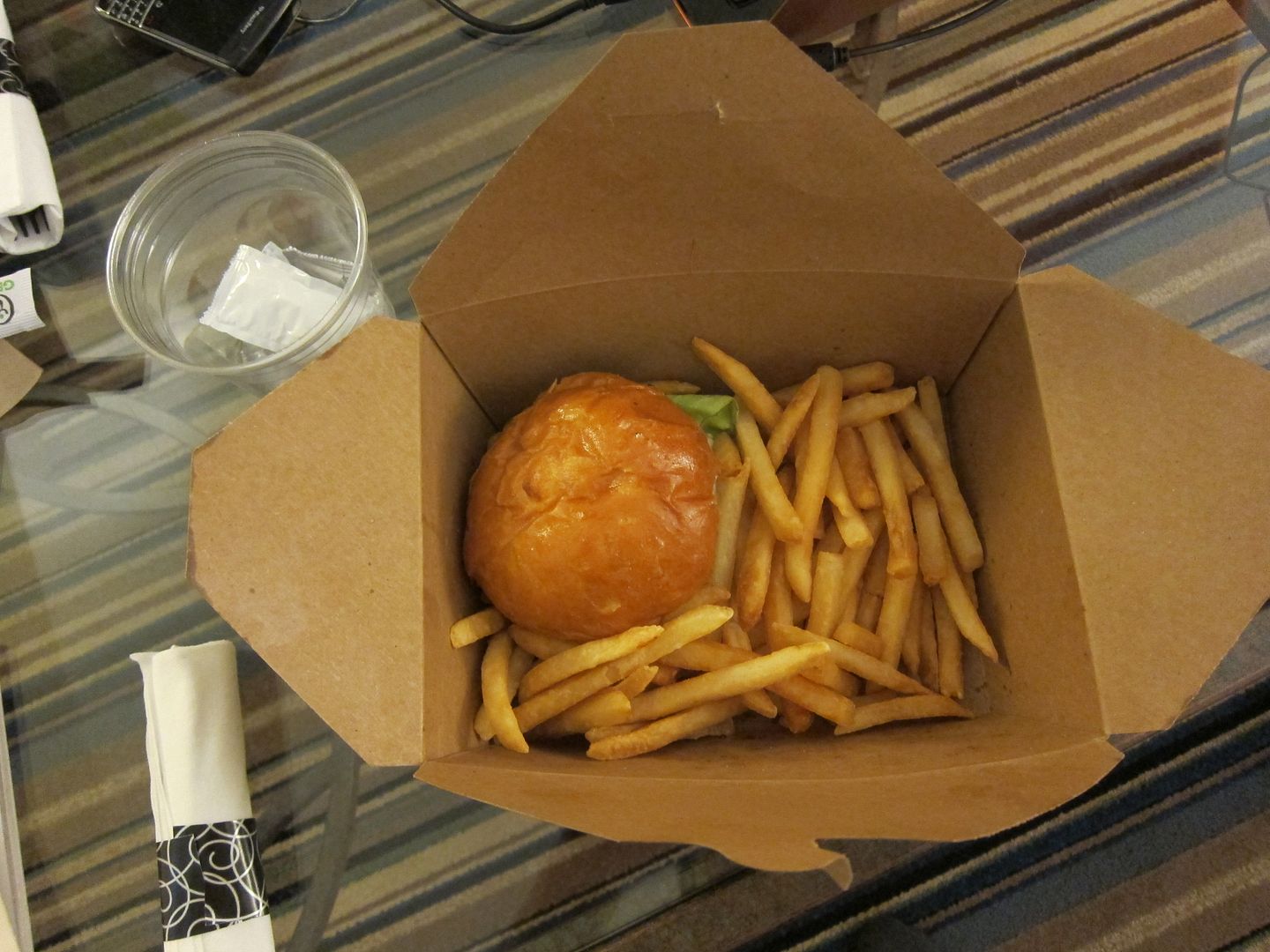
Room service isn’t for everyone, especially those who find it too expensive but there are plenty of situations where it can be worth paying a premium for even outside of a resort context.
- I’ve had many room service meals where it was super convenient to just have food brought to the room when my daughter was less than 14 months old.
- And I’ve ordered breakfast in the morning when I wanted to work, rather than go down to the hotel’s restaurant or to my conference. I’m not ready to run into anyone and get stuck in a conversation. Food comes to my room, and I can eat it while going through documents and getting dressed.
- And sometimes you just want a proper pot of coffee, not the dreck that comes out of in-room coffee machines – and with real cream, not powder or shelf stable chemistry.
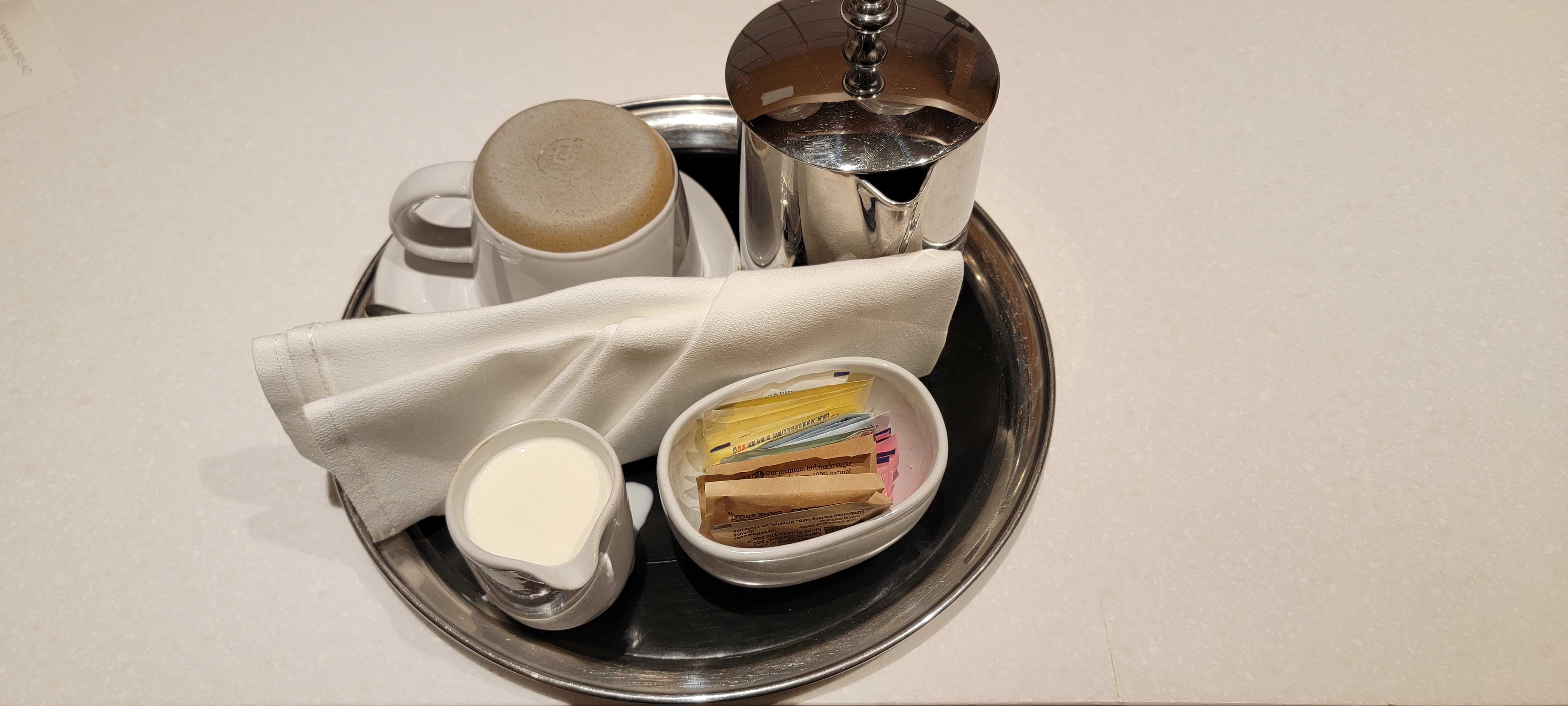
You’re paying a premium to have the food ‘just show up’ and where you can be dressed more casually than going down to pick it up yourself. I just wish more hotels made it clear whether the service charge covered a tip.

How good is this though? How many Hyatt Globalists stay at the Park Hyatt Vendome Paris for the emotional connection and indulgence of included room service breakfast?
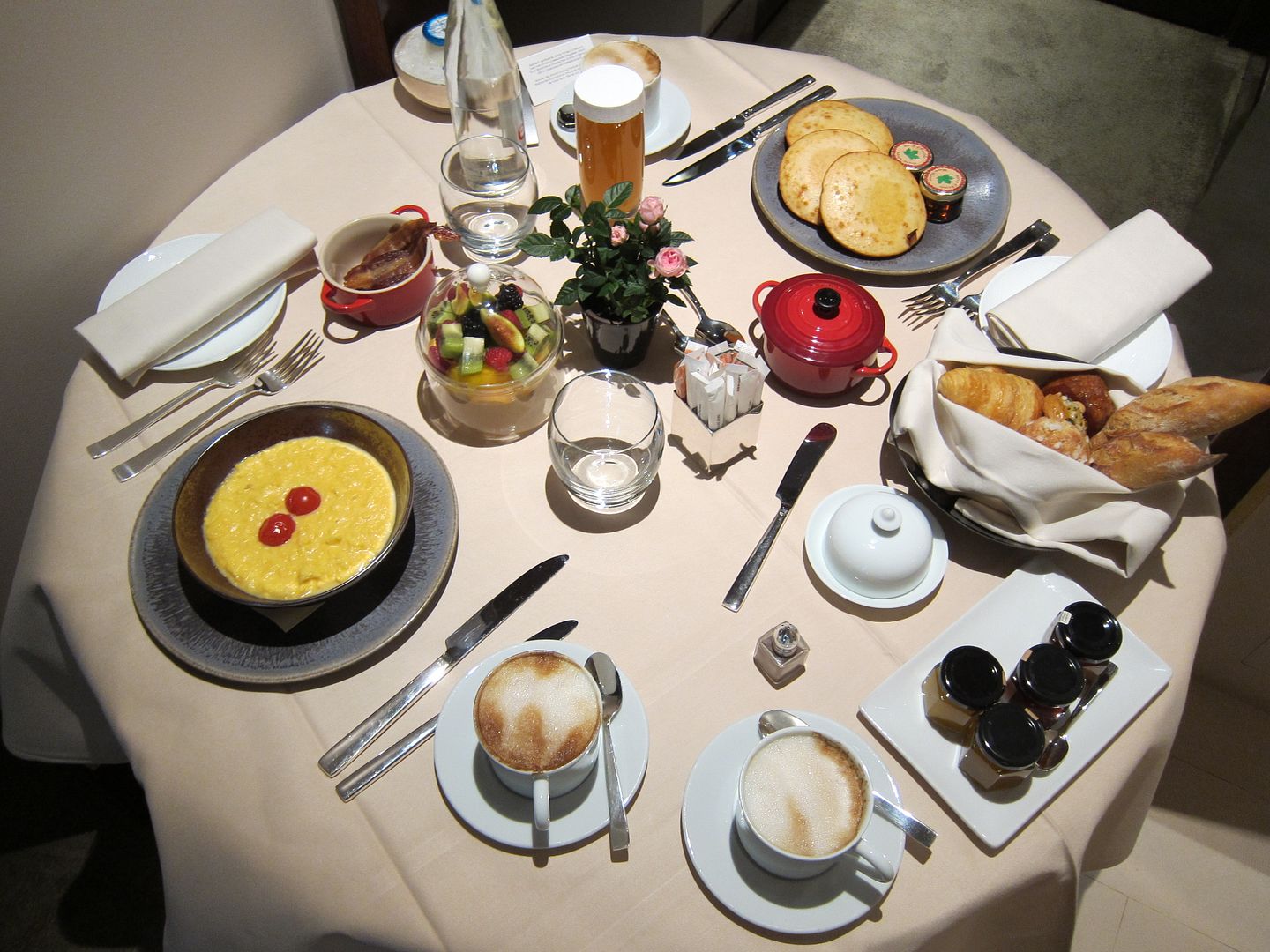
Take a lesson from airlines, most plane food isn’t very good but soups perform exceptionally well when they’re reheated. Stick to easy items that don’t have to be eaten the moment they come off the cook top, and that don’t take a lot of precision in preparation. One of the really great joys I think is ordering nasi goreng in the middle of the night!

Hotels have been cutting back on amenities across the board, including basics like housekeeping, so it doesn’t surprise at all the room service gets degraded or eliminated but then what’s the difference between a hotel and an Airbnb, besides cleaning fees? Premium brands – like a J.W. Marriott, a Conrad, or Park Hyatt – need room service. This doesn’t just set a hotel apart from Airbnb, but a premium hotel from a merely ‘upscale’ one. And once you realize that function, the presentation still needs to be a premium one.


Before the you-know-who-you-are crowd lectures about entitled travelers, saving the planet, etc., etc., etc., I just want to say that if a “luxury” or “premium” brand is NOT providing room service (or God-forbid, does not have a real restaurant onsite), just don’t advertise yourself as premium and don’t charge premium prices. Embrace what you are and cut the bull s**t.
It’s the hotel’s false advertising and fake pretense about being “premium” that probably irritates people the most. I don’t complain about the lack of room service at a Hampden Inn because I know *that’s who they are* and I’m perfectly happy with that.
I would assume all service charges for room service are for gratuities. If the person delivering it claims it’s not, they’re trying to double dip tips.
Hotels are terrible these days. Take your money elsewhere. Horrible!
I know that this is a ‘fun topic’ but room service has never made any sense when it comes to value. It is a luxury that most thinking travellers don’t want or need. Hotels are in business to make a profit. Why would they continue to offer a service that few want? Hotels are on a race to the bottom when it comes to taking care of their guests. Just deal with it. Walk down to the restaurant, order what you want, and come back in 20 minutes to pick it up. If you order a bottle of wine too, hotel staff will walk up to your room with you because you can’t carry it all. Result: hot, fresh food and some decent wine at a fraction of the cost, even after you tip the staffer $10 for being interested in serving a guest. The only other difference between room service and DIY is that you can’t go down there in your jammies, you have to wear some clothes.
Looks like you received $110 worth of condiments!
@Gary – Why on earth would anyone steal a room service plate, let alone a tray?
Room service, taxis, newspapers. All obsolete things that nobody misses.
I’d like to see DD or UE do a tighter integration with hotels, scan QR code in room, expedited delivery with dedicated drivers, a seamless experience by the drivers handing off to hotel service employee who has ability to deliver directly to your room, and provide utensils, etc. much cheaper than having an in house room service operation and better food.
Room service has become so absurd I recently paid $124 for two people.
Every gratuity and fee known to man was added to the bill.
At this point it’s just embarrassing.
With those prices, this is what pushes people to go to grab and go options, to walk downstairs to the restaurant, or go to a cheaper restaurant outside the hotel. The room service meals are getting as expensive as some of the more expensive restaurants, ones that result in a much nicer dining experience. If the average room service meal was about $15 to $35, including fees people might use it more often. For $110 for a meal of two hamburgers in cardboard boxes, that is just a RIP OFF (you could probably get the same at an average restaurant or the ballpark for much less). I bet Doordash or Grubhub could also beat that price too.
I was in a hotel last year (I think it was the IC Boston from recollection) and they wanted $12 for a pot of coffee, plus $5 delivery plus automatic 20% gratuity (surely the tip should be for delivering anyway). So you’re paying $19 for a coffee. Who in their right mind would do that unless you’re very wealthy or lazy (or both). In addition being diamond the lounge was just down the hallway and had an much coffee as I’d like. All the other items on the menu were equally absurdly priced. And it’s not just room service that’s absurdly priced but in room items at those hotels that have them. I recently stayed at a Westin and they had a chocolate bar which was $14 ! Seriously!?
This is something that is happening only in America, a country that is regressing instead of progressing. Room service in Europe, Asia, Oceania and South America is still just as good as it ever was.
If it’s bad value, you don’t have to participate. Read reviews from recent guests to prepare yourself if you care. Often it does depend how remote you are—like, if there are options outside of the hotel, within reason. And, with certain hotel programs there may be a dining credit to use (thinking of that Amex Fine Hotels + Resorts $100 credit, or a Hilton Diamond breakfast credit), but if it’s cost-prohibitive or bad quality, just avoid it. Would not be worth the food poisoning either. It is absurd how a plate of eggs and a coffee can be like $75/person at a Four Seasons. To find those prices at a random Marriott is highway robbery.
“Those that do it well can really earn outsized guest loyalty by creating an emotional connection. What more powerful way is there to do that than food?”
An “emotional connection” with room service? Really? Sad.
As to the Park Hyatt Vendome, the outstanding room service is one of the reasons we stay there. Our daughter has a health disability that limits what she can eat, and she’s also usually too tired for a restaurant meal in the evening. The hotel’s room service was outstandingly accommodating, the food was very good, and the experience of silver and linens is great.
Premium brands need to recognize that you’re only as good as your lowest level of service or product. Paper napkins, plastic utensils, and food in disposable containers does not make for a premium experience. Define yourself where you want to be. JW defines itself as a bus station diner.
@Christian “Why on earth would anyone steal a room service plate, let alone a tray?” Have some fun the next time you’re at a hotel and ask the desk staff “what weird things do people steal?” You can get some hilarious answer. I’ll throw in a line attributed to Yogi Berra: the towels at that hotel were so thick, I could barely shut my suitcase.
@Mantis
I don’t know where you get your news, but I still enjoy the feel and advantages of reading a “real” newspaper. Now, perhaps you have a tablet; I don’t and reading the WSJ or another “newspaper” on my phone just doesn’t do the job.
As for social media, I don’t use them for news; in fact, I don’t use them at all except to exchange personal “news”.
When traveling, I’ll sometimes pay the premium to get a real newspaper, though it’ll often be a local edition that doesn’t give me much of the news that truly interests me.
As for room service — I’ll use it only if I’m feeling sick or am too tired to go out for something to eat.